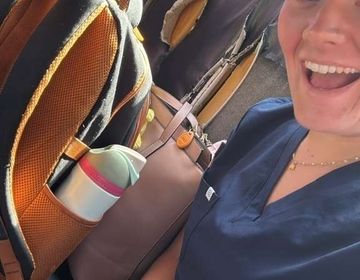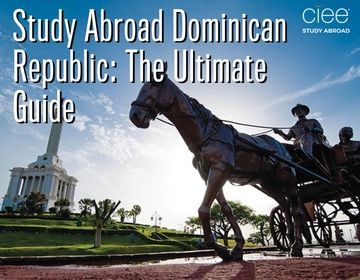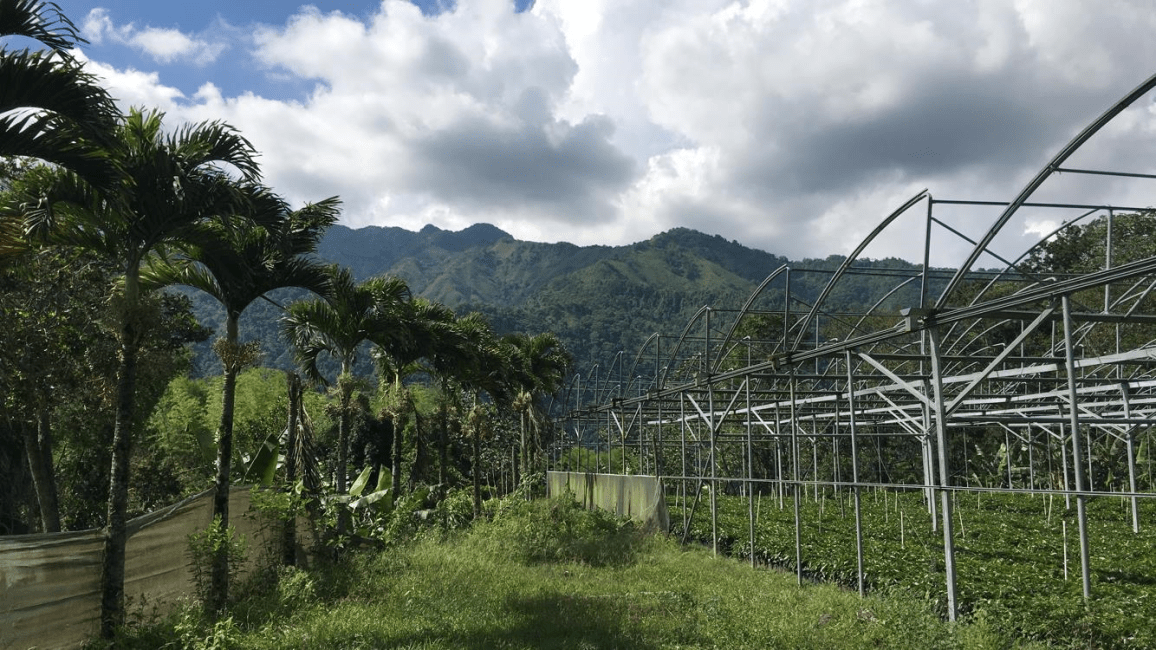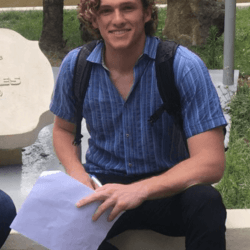Of Mines and Men: Comparing Two Excursions
In a recent week, we were taken, through our program, on two related excursions. One to the Falconbridge mining company, and the other to to Rio Blanco, a sustainable coffee farm in the mountains. Both sites are in the Bonao region. Below I compare and contrast the two:
Rio Blanco
Rio Blanco was an overnight excursion for us, as we stayed in an ecolodge and took the weekend to decompress. I can't say enough about this place. Along with its beautiful backdrop, it has sustainably grown coffee, of which we were given a full visability tour of the cultivation process (and the coffee is delicious), they also have bamboo growing in several locations to sustainably craft wooden items, such as chairs, tables, and dressers. As another credit to their sustainability efforts, one of their main sources of power comes from the river, which is a short five minute drive away. Hydropower is a sustainable method of electricity generation that does not depend on variable wind conditions or time of day, so it can provide clean energy day and night. They take pride in the river there, as it provides power for the community, and it also provides a space for recreation. Though some parts of the river are unfortunately not clean enough to swim in, there are parts of it that are clean enough to swim in, and also to bathe or wash clothes in. Its a vibrant community on that mountain, and if you ever find yourself in Bonao, you would be remiss not to check it out.
Falconbridge
Falconbridge, or Falcondo, is a nickel mining company in the Bonao region of the Dominican Republic. Going into this excursion I was apprehensive, as mining towns are usually not the pinnacle of environmentally conscious businesses. I'll start with the positives.
In the presentation we were given, it was explained to us that Falcondo does care about the environment and the land. They do not use methods as destructive as some others to harvest the nickel, using strip mining (digging from the top) instead of using explosives to blast their way through. They also have a reclaimation process that returns the land to very similar shape to what it was in before. You "wouldn't be able to tell the land was mined", they said. They are also very active in the community, employing 20% of their workforce from the local community, and giving back to the commuity with a scholarship program and community initiatives such as basketball courts to give local kids recreational space. All that is not required, and is completely voluntary.
All the community stuff is voluntary. We found out later via our group grilling them on their environmental policies that everything they were doing to the environment was the bare minimum required by law. For those who don't know, Dominican environmental law isn't exactly pulling its weight. There were obvious environmental concerns that they did not address in their presentation, such as the smoke stack ejecting tons of smoke into the air clearly visible upon entry. I would include a photo here of it, but they are very strict with their no photography rule. I wonder why. When asked about it, they went back to the default answer that they were complying by Dominican law in their efforts to be environmentally conscious.
Finally, it was time for a tour of the facility. We got on a bus and they drove us around, ending up at their plant nursery. There, they grow the plant life that is native to the areas they mine in, and to their credit, they grow grasses and brush to plant first to create a layer of fertile forest topsoil before planting the larger plants and trees. This is an intelligent approach to reforestation. Our tour guide let slip that this too, is required by law. At around this point, I leaned over to one of the people in our tour group and asked, "I wonder if they're gonna show us some half-assed effort at reforestation, or if the mining will actualy be undetectable?" He replied that on a tour like this, we weren't going to see any half-assed job, we were going to see a full-ass effort. And he was right. We did not see a poor attempt at reforestation and land reclamation. In fact, we didn't see any attempt at all. The plant nursery was the only stop on our tour. After that we just took the long way back to where we started.
Am I saying that the people at Falconbridge are evil and want to see the last coral reefs die? No. As long as there is a demand for nickel, Falconbridge will remain in operation, providing needed jobs to the area (if only 20% of their workforce), just like any mine in the states. And like most mines around the world as well, they will do so while spending as little as they can protecting the environment, because it is not beneficial to their short term economic profit. There is one big reason why the people at Rio Blanco care more about wat happens to their environment than those at Falcondo: they live in and depend on the healthy environment to survive and for their business. At Falcondo, only 20% of the company lives in the Bonao region, and their business is much less dependent on the health of the surrounding waterways, air, and people, so unfortunately, until the Dominican government can get its act together, put aside the bribes, and give environmental law the attention it needs, I don't see companies like Falconbridge making any efforts to go above and beyond to be sustainable.
Related Posts

CIEE Full Circle Experience - Life Update! By Margeaux Stapleton
Hey friends! I thought it was time for a life update. I know many of you watch my stories and reels, but as a friend reminded me the other day... keep reading

EAT, DRINK, EXPLORE: SANTIAGO DE LOS CABALLEROS
BEST FOOD TO EAT IN SANTIAGO DR Dominican cuisine is infused with African, Spanish, and Taino influences, meaning dishes are loaded with herbs, but not spicy in nature. La bandera... keep reading

Study Abroad Dominican Republic: The Ultimate Guide
Envision this: Colorful streets alive with the sounds of merengue, the aroma of mouthwatering street food wafting through the air, and a warm Caribbean breeze that makes every day feel... keep reading

